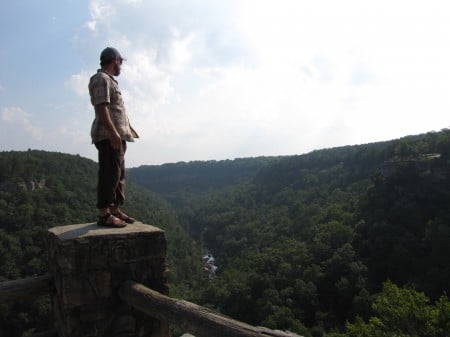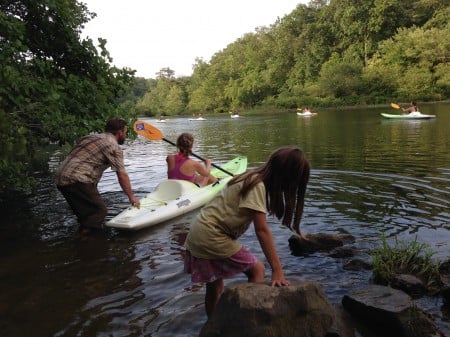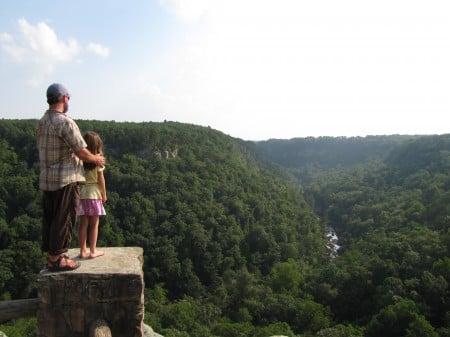A Visit with Alabama’s Little Riverkeeper
Bill Shugart points into the canyon, and looked back in time.
“This is where people used to come and drive their cars off the cliff. Then, they’d claim insurance payouts,” he said.
Southern Power Co. was going to drown the canyon to make electricity, but the view and the winding river that cuts through the forested sandstone bluffs has been preserved as the Little River Canyon National Preserve.
Shugart is the Little River Waterkeeper, and owner of One World Adventure Co., a kayak tour provider and day camp based at nearby DeSoto State Park. I had the chance to meet him while visiting family in the area this July.
While junking cars in the canyon — that particular form of neglect — is no longer a threat to the Little River, threats remain… Logging, chicken and hog farming, sewage contamination and — visible through the trees on some of the bluffs even in the National Preserve — creeping sprawl, as folks from Birmingham, Atlanta, Tuscaloosa and elsewhere snatch up vacation homes.
Not long ago, the Shugart name was synonymous not with water protection, but the local industry, hosiery. Shugart was the third generation to own a mill in Fort Payne, Ala., once known as the “Sock Capital of the World,”. The mill building still stands, empty but with the family name, and Ellie, his daughter, says her favorite pairs of socks were made there. The local industry, which Shugart acknowledges did not operate without impacts to water, is largely gone, thanks to automation and globalization.
Shugart’s set his eyes on giving the region a new identity based on recreation in a beautiful and ecologically rich setting. The Little River is entirely a part of Lookout Mountain, the ridge that runs from Chattanooga, Tenn., through parts of Alabama and Georgia. The Little River is a tributary of the Coosa River, which itself feeds the Alabama River, which ultimately reaches the Gulf of Mexico at Mobile Bay. Like all water, it flows to the sea, and it needs a good keeper.



